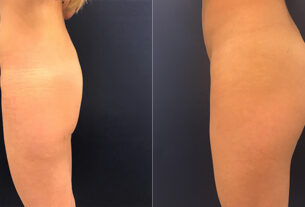
Understanding the Link Between Men’s Hormone Health and Urinary Function
Men often associate hormone health strictly with energy, muscle mass, and sexual function, but hormones—especially testosterone—play a much bigger role in overall wellness. One area many men overlook is the strong link between hormone balance and urinary function. As men age, hormone shifts can significantly impact prostate health, urinary symptoms, and overall quality of life. Clinics help patients understand how these systems connect and offer guidance on treatments that support hormonal and urinary well-being.
While hormone changes are a natural part of aging, they are not something men need to simply “accept.” Recognizing the signs of imbalance early allows for better management and long-term health protection.
How Hormones Affect the Prostate
The prostate is highly sensitive to male hormones, particularly testosterone and dihydrotestosterone (DHT). DHT, a byproduct of testosterone, directly affects the size and function of the prostate. When levels rise, the prostate may enlarge, putting pressure on the urethra and bladder. This can lead to slow stream, urgency, nighttime urination, and incomplete emptying.
Conversely, when testosterone levels fall too low, inflammation may rise, immunity may weaken, and the tissues of the urinary tract may become more susceptible to irritation. These shifts can create a perfect storm for urinary symptoms even without significant prostate enlargement.
Hormone Decline and Common Urinary Symptoms
As men reach their 40s, 50s, and beyond, testosterone naturally begins to decline. For some, the change is gradual and manageable. For others, hormone levels drop more quickly, and symptoms appear early. Common urinary symptoms tied to hormone imbalance include:
- Waking multiple times at night to urinate
- A weaker urine stream
- Difficulty starting or stopping urination
- A feeling of incomplete emptying
- Sudden urgency, sometimes accompanied by leakage
- Increased frequency throughout the day
Many men assume these symptoms are simply part of aging, but hormonal changes may be playing a much bigger role than they realize.
The Importance of DHT Regulation
DHT is one of the most important hormones when discussing prostate and urinary health. High levels stimulate prostate growth, which can worsen urinary symptoms. While DHT is essential for certain functions, too much can cause the prostate to enlarge more quickly than normal. Some men are genetically predisposed to convert more testosterone into DHT, which means symptoms can begin earlier in life.
Understanding DHT levels and how they interact with prostate tissue is crucial for selecting the right treatment plan. Options may include lifestyle adjustments, supplements, medication, or targeted therapies recommended by specialists.
How Stress Impacts Hormones and Urination
Chronic stress is often overlooked when considering urinary issues, but stress hormones like cortisol affect everything from testosterone production to bladder sensitivity. When cortisol remains elevated for long periods:
- Testosterone may drop
- Muscle tension increases in the pelvic floor
- The bladder may become more reactive
- Inflammation rises throughout the body
This combination can mimic or worsen urinary symptoms typically associated with prostate enlargement. Stress management techniques—including exercise, relaxation practices, and better sleep habits—can make a noticeable difference.
The Role of Weight and Metabolism
Body weight and metabolism also play major roles in hormone and urinary health. Excess weight affects hormone production, increases inflammation, and raises the risk of metabolic disorders. Research has shown that men with obesity or uncontrolled metabolic issues are more likely to experience:
- Frequent urination
- Urinary urgency
- Nocturia (nighttime urination)
- Reduced urinary flow
- Prostatitis-like symptoms
Losing even a modest amount of weight can improve testosterone levels and reduce strain on the bladder and prostate.
Lifestyle Changes That Support Hormone and Urinary Health
Men can take several proactive steps to support hormone balance and urinary function:
Stay active. Regular exercise boosts natural testosterone production and helps reduce inflammation.
Improve diet quality. Foods rich in zinc, omega-3 fatty acids, and antioxidants support hormone balance and prostate health.
Reduce alcohol and caffeine. Both can irritate the bladder, worsen frequency, and lower testosterone.
Stay hydrated. Dehydration concentrates urine, making it more irritating to the urinary tract.
Sleep well. Poor sleep reduces testosterone and increases stress hormones.
Limit exposure to endocrine disruptors. Plastics, chemicals, and processed foods can interfere with hormone production.
While these habits support wellness, they cannot replace medical evaluation when symptoms persist or worsen.
When to Seek Professional Evaluation
Men should seek professional guidance if they experience any of the following:
- Frequent nighttime urination
- Sudden changes in urinary habits
- Pain or burning during urination
- Weak or interrupted stream
- Pelvic or lower back discomfort
- Blood in urine or semen
- Erectile or sexual function changes
Ignoring symptoms can allow underlying conditions to progress. Early evaluation can reveal whether issues stem from hormonal imbalance, prostate enlargement, bladder sensitivity, stress, or a combination of factors.
A Specialized Clinic Provides Comprehensive Support
Because hormone health and urinary function are closely connected, comprehensive evaluation is key. Specialists consider hormone levels, prostate size, urinary patterns, lifestyle, stress, and overall health to develop a personalized plan. Many men trust Lazare Urology for this level of integrated care, ensuring they get answers and effective treatment options in a comfortable, supportive environment.








